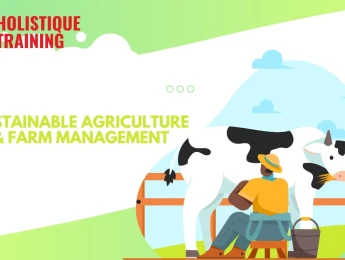As travelers become more environmentally conscious, ecotourism and sustainable travel practices are reshaping the future of the tourism industry. This course is designed to help professionals understand how to develop, manage, and promote travel experiences that prioritize ecological conservation, cultural respect, and community benefit—without compromising on visitor satisfaction.
Participants will explore the principles of sustainable travel, the planning and development of ecotourism destinations, and the operational strategies needed to minimize negative impacts while maximizing long-term value. The course combines global best practices with practical tools that can be applied to tour operations, destination planning, and community-led tourism projects.
By the end of this course, participants will be able to:
- Understand the core principles of ecotourism and sustainable travel.
- Identify environmental, cultural, and economic impacts of tourism.
- Design travel experiences that promote conservation and education.
- Develop strategies for managing tourism sustainably at the destination level.
- Engage local communities and build inclusive ecotourism models.
- Apply guidelines for certification and sustainable tourism standards.
- Promote and market sustainable travel experiences ethically.
This course is ideal for:
- Tourism professionals and tour operators focused on sustainability.
- Ecotourism planners, guides, and destination managers.
- Conservationists and NGO staff working in protected areas.
- Hospitality and travel industry professionals.
- Community leaders developing local tourism initiatives.
- Policy advisors and public officials in tourism and environment sectors.
- Students and researchers in tourism, environment, or sustainable development.
The course uses interactive learning methods, including case studies, planning exercises, real-world destination reviews, and small-group discussions. Participants will design mock ecotourism experiences, assess environmental risks, and build sustainability action plans. Visual aids, guest examples, and digital tools will enhance learning and help translate theory into practice.
Day 5 of each course is reserved for a Q&A session, which may occur off-site. For 10-day courses, this also applies to day 10
Section 1: Introduction to Ecotourism and Sustainable Travel
- Defining ecotourism and its guiding principles.
- Key differences between sustainable tourism and mass tourism.
- Historical evolution and global relevance of ecotourism.
- Benefits of sustainable travel for destinations and travelers.
- Ethical travel and responsible visitor behavior.
- Understanding the tourism-environment-community link.
- Global trends driving sustainable travel demand.
Section 2: Environmental and Cultural Impact Management
- Assessing tourism’s impact on natural ecosystems.
- Strategies to reduce environmental footprint (waste, water, energy).
- Wildlife-friendly tourism practices.
- Cultural preservation and heritage tourism principles.
- Visitor impact monitoring and site carrying capacity.
- Managing human-wildlife conflict in ecotourism areas.
- Case studies of fragile or over-visited destinations.
Section 3: Planning and Developing Ecotourism Products
- Identifying potential ecotourism sites and experiences.
- Community engagement in product development.
- Designing interpretive tours and educational programs.
- Infrastructure planning: eco-lodges, trails, transport.
- Safety, accessibility, and visitor satisfaction in natural settings.
- Blending conservation goals with revenue strategies.
- Ensuring inclusive and gender-sensitive design.
Section 4: Sustainable Operations and Business Practices
- Green business models and financial sustainability.
- Certification programs and sustainability standards (GSTC, EarthCheck).
- Resource-efficient operations: energy, water, supply chains.
- Hiring and training local staff for long-term empowerment.
- Partnerships with NGOs, local governments, and conservation agencies.
- Risk management and crisis response in nature-based tourism.
- Tools for auditing sustainability performance.
Section 5: Marketing and Promoting Sustainable Travel
- Branding ecotourism experiences with authenticity and purpose.
- Ethical marketing practices and avoiding greenwashing.
- Leveraging digital platforms to promote responsible travel.
- Storytelling and guest engagement through content.
- Collaborating with sustainability influencers and travel writers.
- Reaching conscious travelers and niche eco-markets.
- Monitoring customer feedback for continuous improvement.
Upon successful completion of this training course, delegates will be awarded a Holistique Training Certificate of Completion. For those who attend and complete the online training course, a Holistique Training e-Certificate will be provided.
Holistique Training Certificates are accredited by the British Accreditation Council (BAC) and The CPD Certification Service (CPD), and are certified under ISO 9001, ISO 21001, and ISO 29993 standards.
CPD credits for this course are granted by our Certificates and will be reflected on the Holistique Training Certificate of Completion. In accordance with the standards of The CPD Certification Service, one CPD credit is awarded per hour of course attendance. A maximum of 50 CPD credits can be claimed for any single course we currently offer.
- Course Code PO2 - 132
- Course Format Classroom, Online,
- Duration 5 days













